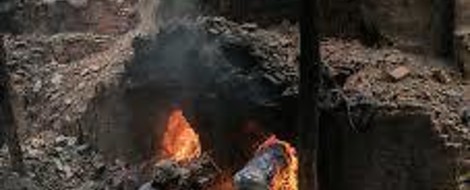Your podcast discovery platform
Curious minds select the most fascinating podcasts from around the world. Discover hand-piqd audio recommendations on your favorite topics.

piqer for: Climate and Environment Globalization and politics Health and Sanity
Mona Silavi is a human and women’s rights activist from the Ahwaz region in Iran. She obtained her bachelor in psychology and specialized in children and adolescence psychology at Damascus University, faculty of psychology and education. She holds a master degree in good governance and human rights in MENA region from Ca’ Foscari University in Venice. She started her activism in Damascus as member of Ahwazi Arab student association. Mona Silavi is a Project Officer at the Unrepresented Nations and Peoples Organization (UNPO) and is the coordinator for topics concerning freedom of religion and belief. She is also a spokesperson of the Al-Ahwaz Democratic Solidarity Party (DSPA). Since 2014 Ms Silavi lives in Belgium as a political refugee
Cambodia: Destruction Of The Environment And Modern Slavery
This podcast is presented by Katherine Brickell, Professor of Human Geography at Royal Holloway, University of London.
Brickell presents a study about how urban development in Cambodia is happening at the expense of the lives of farmers due to unsustainable policies. This presentation was part of the GDI Lecture Series by the Global Development Institute, and was held at University of Manchester on 20 February, 2019.
Ever heard of “Blood Bricks”? It seems strange, but this concept connects all facets of misery of the people, starting from losing their house, lands, families, means of life, freedom of movement, health, and lives.
Cambodia, Asia’s fastest-growing economy, is built both on modern slavery of the population and on the destruction of the environment: Building projects demand bricks in large quantities and there is a profitable domestic brick production industry using multigenerational workforces of debt-bonded adults and children to supply them.
Garment production is another fast-growing industry in Cambodia. Workers in garment factories work and live in a toxic environment. The leftover garment is being used as fuel, creating black smoke polluting the air.The factories do not take any responsibility for the safety of the labor forces and health clinics are highly expensive. When workers get sick because of the work conditions, they have to ask for loans from the factory owner to treat themselves.
In trying to repay loans taken to cope with the destructive impacts of climate change, rural families are forced to leave their homes and live and work in brick kilns. Kiln owners repay their debts; in return, the families have to work in the kilns until the loan is repaid, if ever.
Listening to this podcast made me think again about daily decisions we make and how they affect others—after all, cheap clothing in developed countries is available at the expense of worker exploitation in third world countries.
